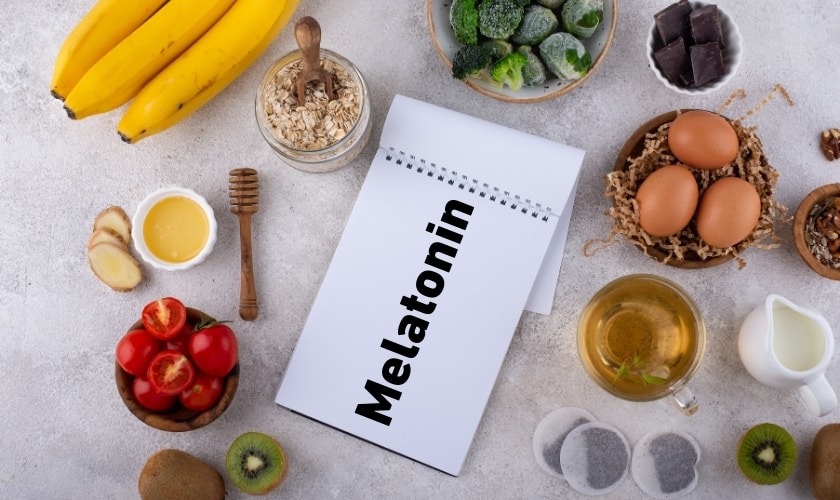Can Lupus Patients Take Melatonin Supplements?
Yes, lupus patients can generally take melatonin supplements, but it's important to consult with a healthcare provider before starting any new supplement, especially for individuals with autoimmune conditions like lupus.
Melatonin, a hormone that regulates the sleep-wake cycle, is commonly used as a supplement to aid sleep. For lupus patients, who often struggle with sleep disturbances, melatonin might be helpful. However, because lupus is an autoimmune disease, it's crucial to consider any potential interactions between melatonin and the patient's immune system, as well as any other medications they might be taking.
Does Melatonin Help Lupus?
Yes, melatonin may help with some aspects of lupus, particularly in managing sleep disturbances, which are common among lupus patients. However, its impact on the disease itself is less clear and requires further research. Always consult with a healthcare provider before starting any new supplement, including melatonin
Effects of Melatonin on Lupus?
- Reduction of autoantibodies
- Renal protection
- Decrease in proinflammatory cytokines
- Lowering immune cell production
- Reversal of immune system changes
Note: This if from research done on mice.
Improve Your Immune System With Melatonin
- Talk to your doctor first
- Start with the smallest dose of melatonin
- Sett up a regular sleep schedule
- Reduce exposure to light at night
- Monitor your response closely
The relationship between lupus and melatonin is gaining interest as melatonin becomes more recognized for treating sleep disorders and various health issues. While the use of melatonin in lupus treatment isn't broadly discussed, research indicates its potential as a therapeutic option.
We will delve deeper into this topic to explore the efficacy of melatonin in aiding individuals with Lupus.

What Is Lupus?
As explained in the MedlinePlus article about Systemic lupus erythematosus, Lupus is an incurable autoimmune disease where the body's immune system mistakenly attacks healthy immune cells. This immune response results in inflammation and damage to various organs, such as the skin, joints, brain, heart, and kidneys. Common symptoms of Lupus include extreme fatigue, chest pain, joint pain, fever, mouth sores, a butterfly-shaped rash on the face, and hair loss.[1]
Once diagnosed, a person with systemic lupus erythematosus can be treated with various medications and lifestyle changes. However, these treatments often come with side effects, such as diabetes, recurrent infections, amenorrhea, and depression, as stated in an NIH study, Therapy Side Effects in Systemic Lupus Erythematosus.[2]
Melatonin And Its Role In Human Body
Melatonin is a brain hormone produced by the pineal gland. It helps to regulate the body's sleep-wake cycle. When it is dark, the body produces more melatonin, which can make a person feel sleepy. When it is light outside, the body produces less melatonin, which can make a person feel more awake and alert.
Melatonin has a number of other functions in the body aside from its role in sleep. Below are the main functions.
- Melatonin is a powerful antioxidant
Melatonin aids in the protection of cells from harmful substances known as free radicals.
- Melatonin has anti-inflammatory effects
Melatonin has also been shown to have anti-inflammatory effects, which can be beneficial for conditions such as asthma and rheumatoid arthritis.
- Melatonin has anti-aging properties
Melatonin is believed to aid in the process of aging by helping to reduce oxidative stress, which can lead to cell damage.
Melatonin is available as a supplement and is often used to help people with insomnia or other sleep disorders fall asleep. Melatonin supplements may also be used to help people adjust to new time zones when traveling or to help with jet lag. If you are a healthy adult suffering from the above-mentioned sleeping disorders, we suggest The Best 2 Melatonin Supplements as a sleeping aid.
Fun fact
While melatonin supplements are not directly linked to weight loss, they may improve sleep quality, which could indirectly contribute to weight management and to learn more, read Melatonin And Weight Loss – Does Melatonin Plays a Role in Weight Loss?.

Does Melatonin Help With Lupus Syndrome?
Melatonin's anti-inflammatory and antioxidant properties have led some to believe that it may be useful in alleviating the symptoms of Lupus. Melatonin has been found to reduce inflammation and oxidative stress brought on by Lupus. However, the effectiveness of melatonin as a treatment option for Lupus is inconclusive. We hope that researchers will do more studies about melatonin. This might help us learn if melatonin is a good treatment for Lupus. For now, we think it is best to talk with your doctor before using melatonin.
This is because some practitioners actually allow melatonin treatment to lupus patients. Dr. Donald Thomas is an example of a practitioner who allows lupus patients to follow melatonin treatment, demonstrating that it can be beneficial and safe for such individuals. There is enough evidence to support this theory, but more research is needed to confirm the results. Let's dig deeper into the study data.[3]

Effect of Melatonin on the Pristane-Induced Lupus Mice
Systemic lupus erythematosus (SLE) is an autoimmune condition caused by environmental factors. In this study, melatonin was used to investigate its effect on SLE that develops due to environmental factors. Pristane was injected into female mice in order to induce an inflammatory response leading to systemic erythematosus lupus. Melatonin was administered orally immediately afterward for 24 weeks.[4]
The results were as follows,
- Melatonin antagonized IgM anti-ssDNA and histone autoantibodies that were increased by pristane injection
- Melatonin lesson the renal lesions caused by pristane
- Melatonin helped reduce levels of proinflammatory cytokines such as TNF-alpha, IL-6, and MCP-1 in the serum of the female mice
- Melatonin lowered the production of B cells, T cells, and neutrophils
Pristine induction was renowned for significantly altering the immune system of mice, causing a reaction similar to human Lupus. This effect could be nullified with melatonin treatment.
Overall, the findings of this study suggest that melatonin supplementation can effectively reduce inflammation and reverse the immune system changes in murine Lupus. The results also suggest that melatonin could be a promising treatment for Lupus and other autoimmune diseases in humans.

Decreased Daily Melatonin Levels in Women with Systemic Lupus Erythematosus
Decreased daily melatonin levels in women with systemic lupus erythematosus (SLE) is a phenomenon that has recently been studied more closely. Women with SLE demonstrate lower-than-normal levels of circulating melatonin, and there may also be an inverse correlation between the activity of their autoimmune disease and their daily melatonin production.[5]
These findings suggest that decreased daily melatonin levels may play a role in the immune function and the progression of SLE. Since melatonin has anti-inflammatory properties, reduced daily production could contribute to inflammation, which could lead to further deterioration of symptoms associated with SLE, such as fatigue and joint pain.
However, this research finding of decreased daily melatonin levels in women with SLE could help us understand autoimmune diseases better. This research shows that we need to explore how hormones interact with different autoimmune diseases. This could help us learn more about the cause of these diseases and how to treat them.

Mayo Clinic Recommendation
Regardless of these study data, major health organizations like the Mayo Clinic strongly advise not to take melatonin supplements as a treatment for autoimmune diseases. As they explain, melatonin can invigorate the immune system and counteract the immunosuppressive treatment. This could potentially worsen autoimmune diseases and even make existing drugs less effective.[6]
Note: If you want to learn more about autoimmune diseases, check out Goodbye Autoimmune Disease.
Furthermore, there is not enough reliable evidence to show that melatonin has any clinically meaningful benefits for people with autoimmune disorders. Some other studies even discourage melatonin administration for systemic erythematosus lupus-developed patients. For instance, consider the following study.
The impact of melatonin on systemic erythematosus lupus between male and female Mrl/Mpj-Faslpr mice
The effects of melatonin on SLE between male and female mice have been studied in a recent NIH study, Sex-dependent effect of melatonin on SLE mice. The results showed a stark difference in response to treatment with melatonin between the two genders.[7]
- Female mice
In female mice, melatonin treatment was associated with decreased levels of total serum IgG, IgM, and anti-double-stranded DNA and anti-CII autoantibodies, as well as decreased pro-inflammatory cytokine production (IL-2, IL-6, interferon-gamma, TNF-alpha and IL=1beta).
In addition, melatonin treatment led to an increase in the levels of anti-inflammatory cytokine IL=10 and altered circadian rhythms of the stress hormone. The histological pattern in female mice improved following melatonin treatment.
- Male mice
In contrast, male mice showed a worsening of their histological pattern with melatonin treatment. Autoantibody titers were also elevated, and the balance of proinflammatory cytokines vs. anti-inflammatory cytokines was heavily skewed towards the former.
In conclusion, it appears that melatonin has a sex-dependent effect on SLE in male and female mice, with a beneficial effect in females and a detrimental one in males, probably because of modulation and inhibition of sex hormones. More research is required to determine the mechanism underlying these gender differences.
From this specific study, it can be concluded that melatonin response can be different in different SLE patients. Therefore, medical professionals strongly advise against using melatonin for those struggling with SLE.

How to Improve Your Immune System With Melatonin
Since melatonin shows both beneficial and detrimental effects on SLE based on gender, it is important to know how to use melatonin safely and effectively to support the healthy immune system of lupus patients. Here are some tips for using melatonin as part of your health plan:
- Talk with your doctor before taking any supplements, including melatonin, to ensure that it is safe for you to take.
- Start with the smallest dose of melatonin that is recommended, and then increase it gradually if needed.
- If possible, turn over to natural melatonin production, such as setting up a regular sleep schedule and reducing exposure to light at night.
- Some food, such as salmon, chicken, yogurt, strawberry, grapes, and walnuts, are rich in melatonin, so try to include more of these foods in your diet rather than taking any melatonin supplements.[7] Also, check out The Complete Anti-Inflammatory Diet for Beginners for more suitable diet plans.
- Be aware that taking high doses of melatonin may interact with other medications you may be taking and can cause adverse reactions.
- Monitor your response closely, and report any adverse reactions to your healthcare provider.
Final Words
Melatonin as a supplement for lupus patients might not be suitable for everyone. Before taking any melatonin supplements, talk to your doctor, especially if you have a pre-existing medical condition or are taking other medications. Consider other supportive measures, such as stress and lifestyle management, as well as dietary changes, before trying to supplement with melatonin for Lupus.
Additionally, discuss with your healthcare provider any potential risks associated with taking melatonin. By following these guidelines and working closely with your healthcare provider, you can ensure you are making the best decisions for your health. With the right management plan and support system, anyone living with Lupus can enjoy a healthy, happy life.
FAQ
Can I take melatonin with autoimmune disease?
Healthcare experts strongly discourage self-medicating with melatonin or any medication without consulting a healthcare provider, as there may be risks associated with taking melatonin while living with an autoimmune disease. Before taking any medication, it is important to discuss your individual needs and concerns with a healthcare provider.
Why lupus patients should not take melatonin?
Some studies have suggested that melatonin may exacerbate symptoms of Lupus, as it can suppress the immune system and trigger flares in some patients. Individuals with autoimmune diseases are more likely to have a weakened immune system, and melatonin may make this worse. Therefore, it is important to discuss the risks and benefits of taking melatonin with a healthcare provider before taking it.
References
- MedlinePlus: Systemic lupus erythematosus
- NIH: Therapy Side Effects in Systemic Lupus Erythematosus
- Regulatory Effect of Melatonin on Cytokine Disturbances in the Pristane-Induced Lupus Mice
- NIH: Decreased Daily Melatonin Levels in Women with Systemic Lupus Erythematosus
- Mayo Clinic: Melatonin
- Pubmed: Sex-dependent effect of melatonin
- PubMed journal: Concentration of melatonin in food




